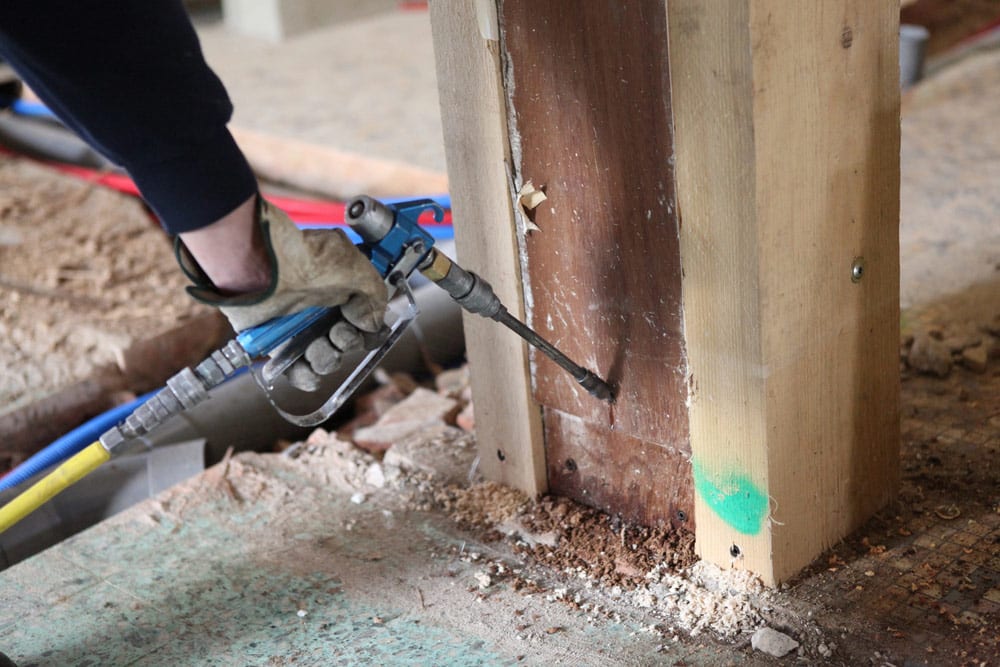Expert Ant Control Services: Personalized Treatments for Enduring Outcomes
Ecological Impact of Pest Control: Harmonizing Performance With Sustainability
The environmental impact of bug control is an essential issue that requires a fragile equilibrium between attaining effectiveness in taking care of bugs and guaranteeing sustainability of our environments. From the usage of dangerous chemicals that seep into our dirt and water to the unintended consequences on non-target varieties, the consequences of standard parasite control methods are significant.
Harmful Chemicals in Parasite Control
The usage of unsafe chemicals in bug control positions considerable ecological and health risks that require cautious factor to consider and reduction strategies. Pesticides, insecticides, and herbicides are commonly utilized to eradicate insects, yet their extensive application can result in unintentional consequences. These chemicals can contaminate dirt, water resources, and the air, impacting not only the targeted parasites however likewise valuable pests, wildlife, and people.

To resolve these threats, integrated insect administration (IPM) strategies are being promoted as an extra sustainable choice. IPM involves a combination of techniques such as organic control, habitat control, and the targeted usage of pesticides as a last resource (ant control mooresville nc). By taking on a holistic method to pest control, we can lessen the ecological and health impacts associated with dangerous chemicals while properly taking care of pest populaces
Impact on Non-Target Types
Considering the unexpected effects of insect control techniques, the effect on non-target species is an important facet that requires comprehensive evaluation. While bug control actions aim to target particular bugs, other microorganisms in the environment may be unintentionally affected. Non-target varieties, including beneficial pests, birds, mammals, and even plants, can endure indirect or direct damage from pesticide applications or biological control approaches.
Pesticides can have dangerous or sub-lethal impacts on non-target species. For instance, pesticides made to combat a particular insect pest may damage pollinators like or all-natural predators such as ladybugs. In addition, chemical residues can build up in the atmosphere, affecting non-target microorganisms in time. Organic control agents, if not species-specific, can posture threats to unplanned targets, disrupting the ecological balance.
To mitigate the effect on non-target species, incorporated pest monitoring (IPM) techniques that emphasize a holistic approach to pest control are suggested. These methods prioritize making use of eco-friendly techniques, decreasing harm to helpful microorganisms while effectively handling pest populaces. Performing detailed danger assessments and keeping an eye on the results of pest control efforts are vital action in protecting non-target varieties and advertising overall ecological community health.
Dirt and Water Contamination
Unexpected ecological repercussions of parasite control approaches expand beyond impacting non-target species, with considerable ramifications for soil and water contamination - ant control. Chemicals, herbicides, and chemical fertilizers utilized in bug control can leach right into the dirt and pollute groundwater, positioning a threat to both marine and earthbound ecosystems.
Water contamination is an additional crucial problem connected with parasite control methods. To minimize soil and water contamination from insect control tasks, incorporated bug monitoring strategies that focus on sustainability and minimize chemical inputs are important.
Air Contamination From Pesticide Usage
Exposure to airborne pesticides during farming applications postures a significant worry for air contamination control actions. They can volatilize right into the air and type unpredictable natural compounds (VOCs) and other air-borne toxins when pesticides are sprayed onto plants - ant control. These chemicals can add to the formation of ground-level ozone, a major component of smog that can have harmful impacts on human wellness, crop performance, and overall air quality. Additionally, pesticide drift, where pesticides are brought by the wind to unexpected areas, can lead to the contamination of close-by communities and water bodies.
Approaches for Sustainable Parasite Control
In the realm of farming techniques, applying lasting parasite control methods is critical for maintaining ecological balance and guarding crop yields. Sustainable pest control stresses using environmentally pleasant methods to manage pest populations effectively while decreasing harm to non-target organisms and ecosystems. Integrated Insect Administration (IPM) is a commonly embraced technique that combines biological, social, physical, and chemical control techniques to achieve long-lasting parasite administration solutions.
Plant turning and diversification are also effective techniques to interrupt pest life cycles and produce much less beneficial problems for insects to thrive. Inevitably, by incorporating these lasting bug control strategies, farmers can accomplish an equilibrium between pest administration performance and environmental stewardship.
Verdict
To conclude, the ecological influence of pest control techniques must be thoroughly taken into consideration to stabilize efficiency with sustainability. Unsafe chemicals made use of in bug control can result in soil and water contamination, air pollution, and damage non-target varieties - ant control services. It is crucial to execute sustainable insect control strategies to minimize these negative effects on the setting and promote a much healthier community for future generations
By taking on an alternative approach to pest control, we can minimize the ecological and health influences linked with harmful chemicals while efficiently taking care of pest populations.

To minimize the air pollution caused by chemical use, it is essential to embrace incorporated parasite monitoring techniques that focus on the use of non-chemical parasite control approaches, such as crop rotation, all-natural killers, and resistant plant ranges. Sustainable insect control stresses the usage of eco pleasant methods to manage parasite populaces properly while lessening injury to non-target organisms and ecological communities. Integrated Parasite Administration (IPM) is a commonly embraced approach that incorporates biological, cultural, physical, and chemical control approaches to attain lasting parasite monitoring options.